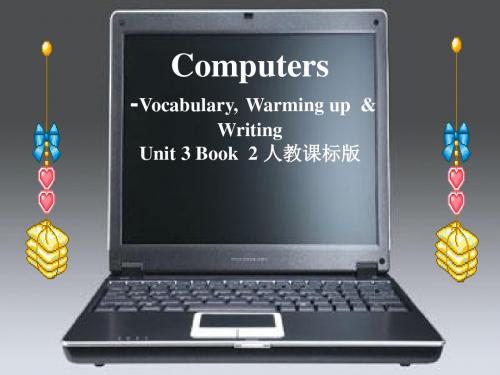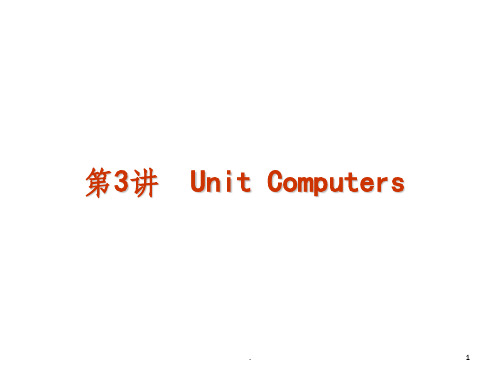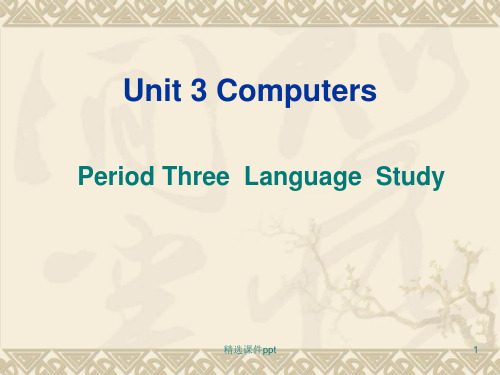China since 1978.
17
2) open, break, drop等不强调动作发出者 时常用主动语态。如: [误] The door has been opened of itself. [正] The door has opened of itself. 3. 短语动词不可分割或省略其中的介词
(1) 不知道或没有必要说明动作的执行者 是谁。
如: Some new computers were stolen last
night. 一些新电脑在昨晚被盗了。
(不知道电脑是谁偷的)
This book was published in 1981.
这本书出版于1981年。
21
(2) 强调动作的承受者, 而不强调动作的执 行者。 如: The window was broken by Mike.
28
Look at the way your face has been washed Look at the way your hair has been combed Look at the way your shoes have been cleaned You’d better do them again. Look at the way the flowers have been planted Look at the way the grass has been cut Look at the way the paths have been swept I hope that you’ll come here again.
believed. 16
2. 并不是所有动词都有被动语态
1) happen, take place, break out, belong to, cost, last等不及物动词或词组无被 动语态。如: [误] Great changes have been taken














